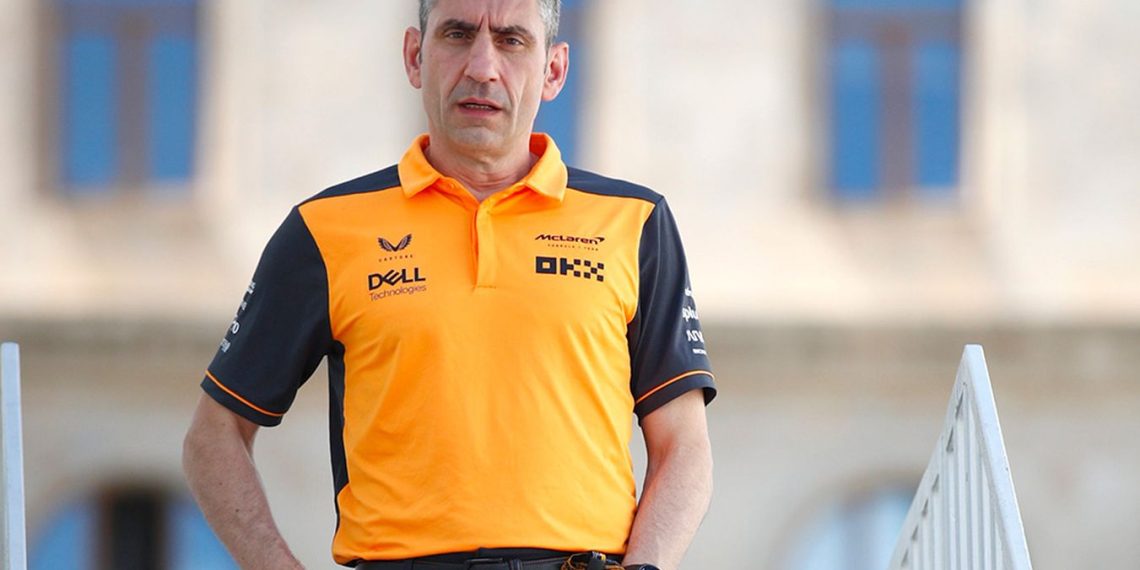McLaren’s team principal Andrea Stella isn’t holding back after the FIA stewards rejected the team’s right of review over Lando Norris’ five-second penalty at the United States Grand Prix. Stella openly disagreed with what he calls a “provable error” in the stewards’ interpretation, especially after McLaren believed it had “significant, relevant, and new” evidence to back up its case.
The dispute centers around Norris’ late-race pass on Max Verstappen at Turn 12. Norris was penalized for allegedly completing the move off-track, a call that cost the McLaren driver precious seconds and a potential boost in standings. While initially accepting the stewards’ judgment, McLaren pursued a right of review, armed with evidence they felt contradicted the original ruling. According to Stella, this evidence pointed out a clear error: that Verstappen, not Norris, was the overtaking driver at the time of the incident.
Stella expressed his frustration, saying, “Reading the decision, it was very clear that the ruling included an objective, measurable, provable error.” McLaren’s team had believed their submission met all four criteria for new evidence set by the FIA International Sporting Code (ISC), yet the stewards dismissed the review, stating the initial decision itself could not be considered new evidence.
“The FIA document brought forward an objective error in the initial decision,” Stella stated. “To see that kind of error—something you can measure and prove—rejected as inadmissible is difficult to comprehend.” The rejection sparked further debate over the clarity and consistency of the review process, especially in cases involving top-tier teams and drivers in such a high-stakes environment.
Despite the stewards’ denial of McLaren’s review, Stella maintained a diplomatic stance, even acknowledging the stewards’ prompt handling of the issue. “We remain thankful to the stewards for having considered the matter very quickly,” he remarked. Yet, he emphasized that the incident highlights an area where the FIA could improve, suggesting a need for clearer guidelines around admissible evidence and fair competitor rights.
For Stella and McLaren, this controversy is more than just about a five-second penalty; it’s a matter of accountability and fairness within Formula 1’s regulatory structure. Stella underscored McLaren’s commitment to working constructively with the FIA, saying, “We all have to collaborate to improve how races are monitored and to ensure teams have a fair chance to rectify errors that could affect race results.”
Stella’s stance resonates with an audience eager to see more consistency and transparency in Formula 1’s decision-making, especially as the sport grows in popularity across the United States. For American fans of F1, it’s a reminder of the complexities and passions that fuel the sport beyond the finish line.










